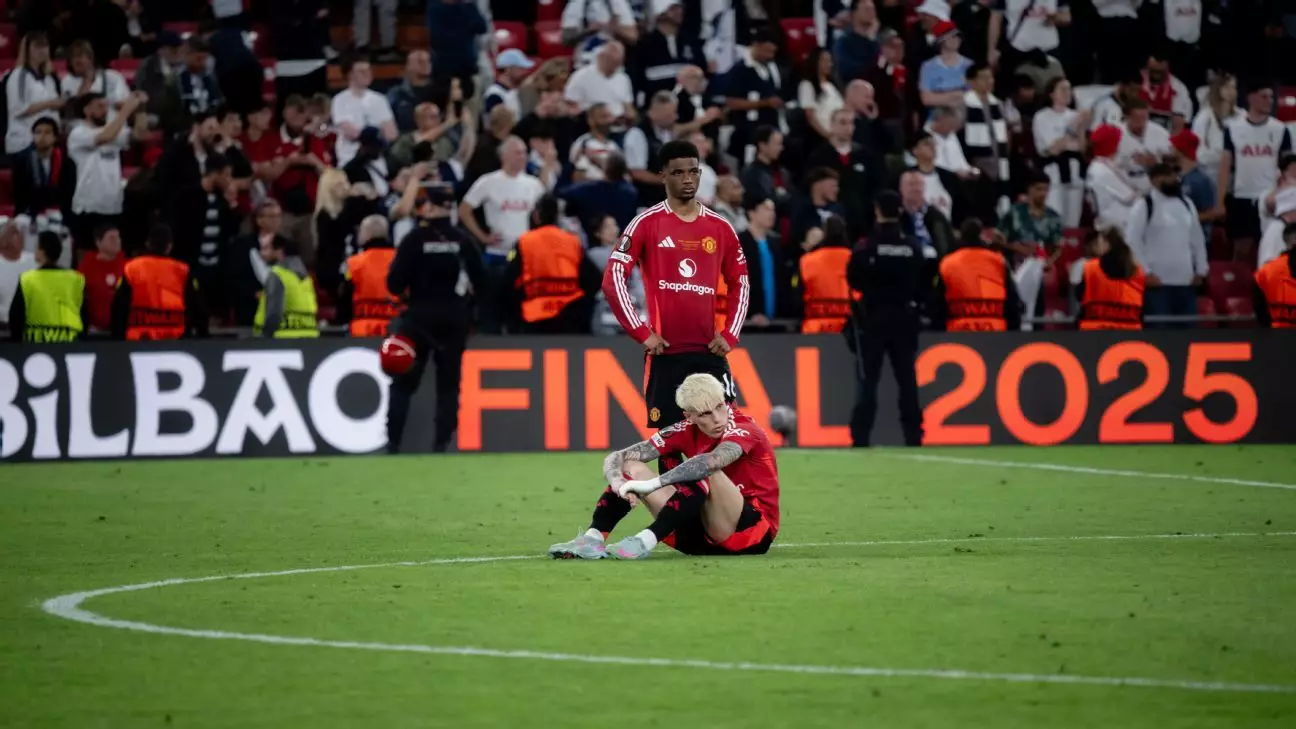In the ever-evolving landscape of football, loyalty is a concept that sometimes feels outdated, particularly in an environment driven by transfer rumors and financial incentives. Recent discourse surrounding Manchester United’s young winger Alejandro Garnacho highlights not only individual potential but also the necessity of fostering relationships within a team. Amad Diallo’s public appeal for Garnacho to remain at the club serves as a beacon of solidarity and insight into the deeper complexities of player dynamics. Diallo, acknowledging Garnacho’s talent and importance for the club, paints a picture not just of camaraderie but of the foundational aspects that can elevate a team from mediocrity to greatness.
As the murmurs of potential transfers begin to swirl, especially with Garnacho’s representatives set to engage in dialogue around his future, the unified front presented by Diallo underscores a critical point: successful football isn’t merely about assembling the best talent; it is about forming a coherent unit capable of weathering the storms that accompany both victories and defeats.
The Impact of a Disappointing Season
The shadow of a disappointing season can often cast a pall over the aspirations of a club. Manchester United’s troubling finish in the Premier League—a mere 15th place—has produced a myriad of challenges, none larger than re-establishing player faith and fan trust. Coach Ruben Amorim’s candid acknowledgment of the harsh realities faced by the club reveals a crucial aspect of managing not just individual performances, but team morale. The frustrations of players like Garnacho, particularly after a severe blow like the Europa League final defeat, reflect the larger emotional landscape within the club.
It’s easy to forget that behind the glamorous lives of professional athletes lie the pressures of expectations, both internal and external. Garnacho’s public frustration serves as a microcosm of a club grappling with identity and purpose at a time when results fail to align with ambition. It emphasizes the importance of transparent communication within teams—players should feel both seen and heard, even amidst collective adversity.
The Significance of Support and Assurance
Amad Diallo’s statements not only reflect a teammate’s desire to maintain solidarity but also emphasize an intrinsic need for support within the club. His assertion that “we need good players in the team” is an honest perspective, but it transcends mere football jargon. It speaks to the essence of creating a culture where players can thrive not just as athletes but as individuals.
Support from teammates can be a catalyst for individual growth, fostering an environment where emerging talents like Garnacho feel valued and motivated to contribute to the team’s overall trajectory. The importance of assurance cannot be overstated; for a player who is on the cusp of greatness, knowing that established teammates are rooting for him can have a profound impact on his decision-making—whether to stay during challenging times or to seek greener pastures elsewhere.
The Responsibility of the Club and Its Management
For any football club, the onus lies also on management to cultivate a conducive environment for talent retention. Amad’s comments come at a crucial time when the leadership at Manchester United must be proactive in addressing concerns about player satisfaction and commitment. Building a rapport with each player, offering clear prospects for the future, and fostering a bond between the coaching staff and players can mitigate the disruptions that come with potential transfers.
The challenge is that when a player, particularly one as promising as Garnacho, considers leaving, it reflects a potential disconnect between player aspirations and club ambitions. Ensuring that the players are on board with the club’s vision, along with being proactive in addressing their concerns, is vital for Manchester United as it seeks to rebuild its reputation both domestically and on the European stage.
Fostering a Culture of Loyalty
Ultimately, Alejandro Garnacho’s situation highlights the need to cultivate a culture of loyalty in football—a dynamic so often overlooked yet crucial for long-term achievement. The ability to nurture relationships built on trust and support will not only enhance performance on the pitch but also solidify Manchester United’s standing as a contender in the future. As the speculation swirls regarding Garnacho’s future, it is the voices of teammates like Amad Diallo that remind us of the power of unity in achieving common goals. In an era of relentless transfers, remembering the human side of the sport is key; loyalty may be the true power word that defines success.

Leave a Reply